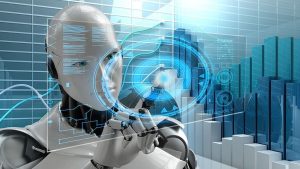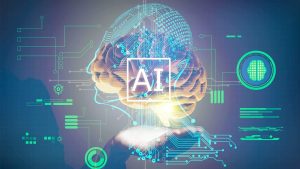Artificial Intelligence (AI) continues to reshape the modern world, influencing everything from customer service chatbots to predictive healthcare tools. Among its many benefits, one of its most transformative contributions is its ability to enhance decision-making processes. With the rapid growth of AI development, businesses and industries now have the power to make faster, smarter, and more accurate decisions, gaining an edge in today’s competitive landscape.
This blog explores how AI development is revolutionizing decision-making, its impact across various industries, and what the future holds for businesses and professionals alike. Whether you’re a tech enthusiast, a business leader, or a data scientist, this guide offers insights into leveraging AI for better outcomes.
Understanding AI Development

Before we dive into its impact on decision-making, let’s take a moment to understand what AI development entails.
What is AI?
Artificial Intelligence refers to the simulation of human intelligence in machines programmed to perform tasks that typically require human cognition, such as learning, reasoning, and problem-solving. AI relies on vast amounts of data and sophisticated algorithms to mimic decision-making processes at extraordinary speed and scale.
Key Components of AI Development
AI development encompasses various technologies and methodologies, such as:
- Machine Learning (ML): The process that allows algorithms to learn and improve from data without explicit programming. This is the backbone of AI and powers systems like recommendation engines on Netflix or self-driving cars.
- Natural Language Processing (NLP): Enables AI to understand, interpret, and respond to human language. Real-world examples include AI assistants like Siri and chatbots used in customer support.
- Computer Vision: Focuses on enabling machines to interpret and understand visual data from the world, such as facial recognition or medical image analysis.
- Deep Learning: A subset of machine learning that employs neural networks to mimic human brain functions, often used in image recognition, language translation, and more.
AI development merges these technologies in unique ways to tackle complex tasks, and one of its most valuable applications is in decision-making.
How AI is Transforming Decision-Making
Decision-making has traditionally been a manual or human-driven process. Business leaders analyze data, weigh options, and draw conclusions. While effective in some scenarios, this approach can be prone to biases, errors, and inefficiencies. AI is changing the game entirely by introducing tools and systems that enhance decision-making.
Speeding Up Decision-Making
AI excels at processing large datasets at lightning-fast speeds. What might take a human weeks to analyze can now be done by AI in seconds. For example, financial institutions can use AI to analyze market trends and execute trades in real-time, all while minimizing risks.
Reducing Human Bias
Decision-making often suffers from unconscious biases. Whether in hiring, marketing, or strategic planning, bias can skew decisions and lead to suboptimal outcomes. AI algorithms, when properly implemented and trained on unbiased data, can help neutralize these effects, delivering more objective results.
Leveraging Predictive Analysis
AI doesn’t just look at past data—it forecasts the future. Predictive analytics powered by AI can provide insights into customer behavior, demand forecasting, and risk analysis. For instance, AI applications in supply chain management predict disruptions, enabling businesses to prepare well in advance.
Real-World Examples
- Healthcare: AI tools assist doctors by analyzing patient data to suggest potential diagnoses or treatment plans, reducing the risk of errors and ensuring timely interventions.
- Retail: Retailers use AI-driven recommendation systems to optimize pricing strategies and suggest personalized product offerings to customers.
- Finance: AI-powered systems detect fraudulent transactions with unparalleled accuracy by monitoring patterns and anomalies in real-time.
The Impact of AI on Different Sectors

AI’s decision-making capabilities are making waves across industries. Here are some examples of its impact:
Healthcare
From diagnosing rare diseases to staffing hospital wards, AI is a critical tool for medical professionals. Advanced AI systems analyze imaging scans to detect early signs of diseases such as cancer. Additionally, predictive models are helping hospitals plan resources, ensuring that no patient goes unattended.
Finance
AI tools are transforming financial services by automating risk assessments, fraud detection, and portfolio management. Algorithms can analyze historical and current market trends to provide actionable insights instantly, helping businesses and individuals make informed investment decisions.
Retail
Retailers are using AI to create personalized shopping experiences. By analyzing purchase history and browsing behavior, AI systems recommend products tailored to each customer’s preferences. Inventory management is also enhanced with predictive models that forecast demand and reduce overstocking.
Supply Chain Management
AI optimizes logistics by analyzing vast amounts of data related to inventory levels, weather conditions, and transportation routes. This allows companies to reduce costs, improve delivery efficiency, and minimize waste.
Challenges and Opportunities of AI in Decision-Making
While the benefits of AI are undeniable, integrating it into decision-making processes isn’t without challenges.
Common Challenges
- Data Quality: High-quality data is essential for accurate AI predictions. Errors or biases in data can lead to flawed decision-making.
- Cost of Implementation: Developing and deploying AI systems can require significant upfront investment, which may not be feasible for all organizations.
- Resistance to Change: Some professionals are hesitant to adopt AI tools, fearing job displacement or distrusting automated systems.
- Ethical Considerations: AI’s neutrality depends on its programming and data sources. Biased algorithms can perpetuate discrimination rather than eliminate it.
Opportunities
- Scalable Technology: AI is more accessible than ever, with cloud-based platforms making advanced tools available to businesses of all sizes.
- Workforce Augmentation: Far from replacing humans, AI empowers professionals by automating repetitive tasks and enabling them to focus on high-impact decisions.
- Competitive Advantage: Organizations that successfully integrate AI will find themselves at the forefront of their industries, equipped to innovate faster and respond more effectively to challenges.
The Future of AI in Decision-Making

Looking ahead, AI development will continue to shape how organizations and individuals approach decision-making.
Predictions
- AI will play a larger role in strategic planning, helping businesses not only anticipate market trends but also innovate in response to them.
- Autonomous decision-making systems, backed by AI, could potentially operate in sectors like transportation, urban planning, and emergency response.
- Personal AI assistants may evolve to make personalized decisions for individuals, like managing schedules, investments, and even health regimens.
Ethical Considerations
While powerful, AI requires oversight to ensure its responsible use. Organizations must commit to transparency, prioritize unbiased data, and keep humans in the loop to verify critical decisions.
The Human-AI Collaboration
AI will likely never fully replace human intuition and creativity in decision-making processes. Instead, the future lies in collaboration. AI can manage data-heavy tasks and generate insights, but human professionals will provide judgment, ethics, and adaptability.
AI and Your Business Success
AI development is more than a trend—it’s a formidable tool in enhancing decision-making across sectors. By leveraging its potential, organizations can drive efficiency, reduce risks, and stay ahead in an increasingly competitive environment.
Now is the time to explore how AI can transform your business. Whether you’re a leader seeking to streamline operations, a data analyst looking for stronger insights, or a tech enthusiast keen to innovate, AI holds the key to unlocking smarter, faster decisions.
If you’re ready to integrate AI into your processes, start by exploring available tools, educating your team, and identifying specific goals. The future belongs to those who act now.










